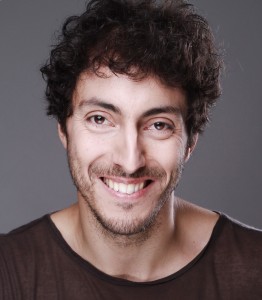 Over the last few months, I had been getting ready for being deployed to Liberia or Sierra Leone with a non-governmental organisation. Regrettably, owing to several doubts I had with the project, I finally will not be going. However, I have been trying to learn as much as possible about the Ebola virus disease (EVD) and I am concerned about some of the things I learned.
Over the last few months, I had been getting ready for being deployed to Liberia or Sierra Leone with a non-governmental organisation. Regrettably, owing to several doubts I had with the project, I finally will not be going. However, I have been trying to learn as much as possible about the Ebola virus disease (EVD) and I am concerned about some of the things I learned.
Last December, I attended a roundtable on this topic at the Institute of Health Carlos III (ISCIII) in Madrid. Alberto Infante, a former professor of international health at the National School of Public Health, pointed out some striking facts. Firstly, and as Google Trends show, as the risk of the disease spreading in Western countries drops, our interest sharply declines.
Secondly, the affected western Africa countries were growing at rates between 4 and 11 per cent of their GDP before the epidemic, while currently they have negative growth rates. An upcoming food crisis is evident and, although EVD is now their main economic problem, HIV/AIDS, malaria, diarrhoea, and tuberculosis—which cause far more deaths than EVD—remain leading health issues. Yet so far we still lack a consolidated plan for the international funds required to tackle these problems.
Thirdly, denial of the problem has too often been the general rule for the affected countries—which still last June were criticising MSF for alarmism—the international community, and transnational institutions—which have been too slow with their aid offerings. “I was working at the WHO [World Health Organization] in the cabinet of Margaret Chan April through June, and I am a witness of inaction,” Infante said.
Fourthly, Nigeria’s strategy—in contrast to what was done in Liberia or Sierra Leone—facilitated contact tracing, instead of making those who came into direct contact with a sick Ebola patient flee: borders were not closed, mass quarantines were not established, nor was the army commanded to tackle the problem.
Both the way in which research for a specific treatment is being tackled and the way in which we Western citizens perceive that process throw up certain concerns. Antonio Sarria, head of evaluation of health technologies at the ISCIII, whom also spoke at the roundtable, quoted one of the very few studies to date on specific therapies: a small trial developed during an outbreak in the Democratic Republic of the Congo in 1995, which showed a 12.5% case fatality rate among eight patients who received blood transfusions from convalescent donors. Although the study is quite limited, WHO quoted its “promising” results, and a panel of experts summoned by the organisation concluded last September that “the use of whole blood therapies and convalescent blood serums needs to be considered as a matter of priority.”
If, in fact, this is the only specific therapy that has proved effective so far, why has so much research emphasis—in news headlines and even by WHO itself—been placed on vaccines? Is vaccinating large groups of the population the most useful tool to deal with a still rare disease, which is not spread by airborne transmission, needs close contact for transmission, and appears mostly in self-limited outbreaks, or is it the most profitable therapy to focus on?
Infante discussed how shortly after the drug manufacturer Merck purchased the rights to an experimental vaccine, the US government offered legal immunity to manufacturers developing vaccines for Ebola, and the Gavi Vaccine Alliance approved plans to buy 12 million courses of a vaccine from a manufacturer as soon as one is approved. Previous estimates predicted that by January 2015 at least 550 000 people would have been infected, but Infante quoted current estimates of around 40 000 cases on the whole. Doesn’t 12 million courses seem quite excessive?
And finally, survival highly depends on the country of treatment. Although survival among people treated in African countries reaches only 60%, among the two dozen health workers who have been expatriated to 10 developed countries survival climbs to 85% (four deaths). Although we lack a specific therapy for treating Ebola, hydration—both oral or intravenous—antibiotics to prevent bacterial infection, antipyretics, or anticonvulsant drugs can be provided, and mortality is notably determined by the conditions in which patients are treated. For instance, in many Ebola treatment centres neither intensive care nor overnight care are provided, and resources are too often limited.
As I saw in Haiti back in 2012, I presume that the health facilities for expatriated workers who’ve been in the field will not have these limitations.
This is by no means any criticism of my colleagues contributing their best work in west Africa. But while I still thought I was going to west Africa, all of this worried me. Our limited perspective, our slow and negligent response, all the spurious and illegitimate interests surrounding this tragedy—the contradictions of knowing that I could be properly cared for or returned home, while those from the affected countries will remain with what can be done for them.
Aser García Rada is a paediatrician and a freelance journalist.
Competing interests: None declared.